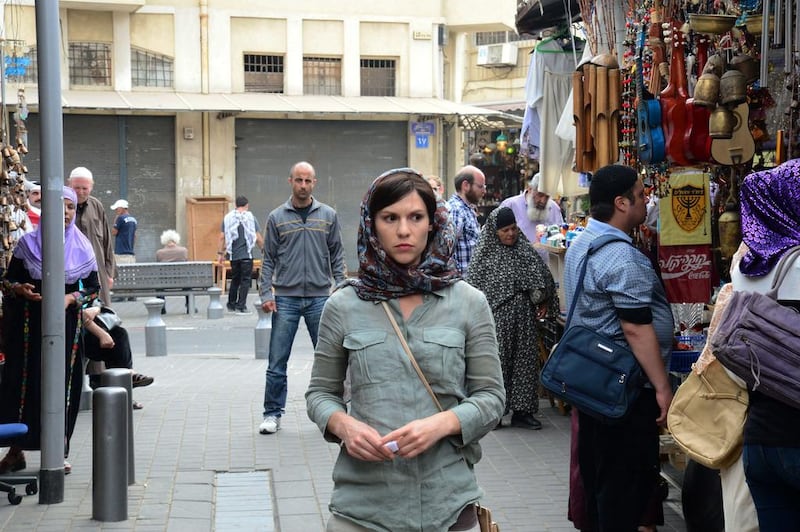Picture the scene: across the rooftops and minarets of an unspecified Middle Eastern town, the call to prayer rings out. Is it just another day in your hometown? Is it an ad for exotic holidays for orientalist westerners embarking on a journey of self-discovery? Or is it the beginning of yet another Hollywood movie about terrorism?
Sadly, in the modern Hollywood lexicon, opening a movie with just such a scene has become filmic shorthand for “and now, a movie involving terrorists, bombs and the noble struggle of the US of A to keep the peace through the use of a remarkable amount of expensive and suspiciously unpeaceful, military ordnance”.
The Oscar-nominated American Sniper is just the latest in a long line of such movies though, admittedly, this one foregoes the romantic rooftop setting in favour of tanks for its opening scene.
But it is by no means unique. A quick straw poll pulled up an impressive list of movies that start with that very scene of the call to prayer: Black Hawk Down, Delta Force, The Kingdom, Syriana, Zero Dark Thirty, Three Kings, The Hurt Locker.
In an interview last year, Jack Shaheen, the author of the book Reel Bad Arabs, and the narrator of the documentary of the same name, which looks at the almost exclusively negative portrayal of Arabs in Hollywood cinema, claimed that the reason Hollywood directors inevitably misportray the Arab world in their productions is because they never actually come here, for a host of largely poltical reasons.
We asked local filmmakers what other clichés they are tired of that Hollywood routinely rolls out when making a movie set in this part of the world.
Faisal Hashmi of Hashmic House Films
“What’s with that unnecessary yellow/brown colour palette whenever a film is set in a Middle Eastern country? There are only two spectra of Middle Eastern countries when it comes to Hollywood – the war-torn ultra-conversative ones, or the super-elegant rich ones.
“TV shows such as Homeland show the streets of every Middle Eastern country as littered with armed men, women everywhere wearing burqas, men wearing turbans, the city feeling like it’s on a constant lockdown of some sort. On the other side, it’s rich with hot women, fancy cars and places, basically Las Vegas. No middle ground whatsoever.
“And why are there camels everywhere near roads? A constant sense of sandiness, where the air is full of sand in every shot to varying intensity? And the sandstorm, of course.”
Mustafa Abbas (director, Sunset State, 100 Miles)
“Empathy must be created towards the main character. But when you make a film about one nationality or religion playing the good guys, and another nationality and religion playing the bad guys, then naturally viewers of the latter nationality/religion are going to have a tough time feeling empathy for the lead character who’s on the other side of the fence. Let alone how they are going to feel/react to how poorly their nationality/religion might have been portrayed.
“Robert McKee is one of the gurus of screenwriting. I love his book Story which is quite popular among all kinds of writers in the world. One of McKee’s “commandments” as he calls it, is “Thou shalt research!” When you have an Arab character in a film and he’s dressed up formally in Arabian attire, couldn’t they do just a little bit of research about how things are set up? The ghutra and agaal. Yes, “the cloth and black thing on the head” as some call it.
“Or bringing in Mexicans to play Arabs, which is totally fine if the actors are good enough and convincing, but what about the Arabic language? What about the dialect? The accent? The lifestyle? And this is the shocking part: all Arabs are not the same, you know?”
Talal Asmani, head development executive, Image Nation Abu Dhabi
“If filmmakers in Hollywood want to portray Middle Easterners or the Middle East, they should simply get to know some. But the sad truth is that most just recycle what other Hollywood movies do when portraying the region and culture. They don’t have to even travel across the world, there are plenty of Middle Easterners right on their doorstep.
“It’s a cliche that has been recycled so many times that it has become a replica of a replica of a replica, and so far away from the truth. Learning more about the rich culture from a direct source will only enrich the content and the moviegoing experience tenfold.
“This probably isn’t their fault. It is most likely the effect of so many other filmmakers that go to other Hollywood films for inspiration. The problem is that this has been going on for so long and honestly hasn’t affected their success or ticket sales. Most of their audience isn’t aware of the inaccuracy or, frankly, don’t care. However, in an age where the film business is becoming a lot more competitive and the international market becoming a lot more critical, these inaccuracies are going to mean a lot more.”
Nayla Al Khaja (director, The Neighbour, Malala)
“The three big Bs: Bombers, billionaires, belly dancers. There’s my short take.”
Jamal Hassan Iqbal (actor, Seashadow, Abood Kandaishan)
“Hollywood sells the American dream – the villains have a French accent, or a British one. India’s greatest contemporary actor Naseeruddin Shah played a bumbling idiotic Captain Nemo, and the “Bedouin of Hollywood” Bashar Atiyat plays just that.
“The most authentic representation I saw was on television, in The Blacklist. Hisham Tawfiq plays Dembe, the protagonist’s Muslim right-hand man. He decided to die in front of the protagonist to prevent the blackmailers from winning, and the protagonist is seen reciting the Qalmah as he is about to die. Simple and effective. “In the same series an Israeli says: “I’m half-Jewish, part-Iranian-American Muslim.” I think TV is doing a far better job.”





